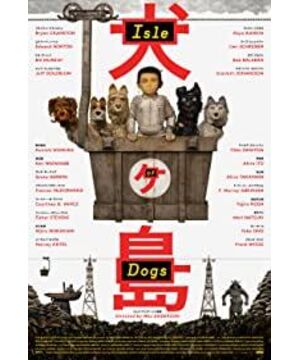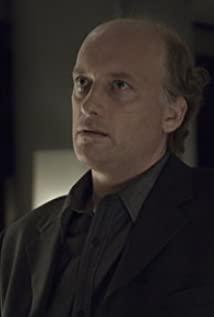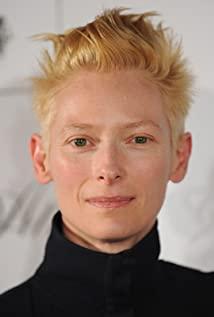Although the animation is about puppies, Anderson doesn't keep dogs, he keeps sheep. baa~~~
(slight spoilers)
Of course, those frequently interpreted symmetrical compositions, bright colors and nostalgic pop music do not need to be repeated. After all, these are the personal image symbols that Anderson has continued for more than 20 years. However, this is inseparable from photographers and animation. The result of the teachers working together.
Under the label of its very personal image language, "Canis Island" is still a young character in the form of Sellin, who is marginalized by the adult world out of a kind-hearted choice, looking for his love on a garbage island where stray dogs live. The dog guard, with the help of stray dogs and foreign students, eventually became the mayor of Mizaki. The story is a traditional fairy tale structure, with Anderson's customary chapter narration and comic-inspired performance details that reflect the social and political realities. The film has a strong Japanese national color and sharp political metaphors, such as: the boy defeated the tyrannical mayor with the help of the local force stray dogs and the assistance of foreign students, and won the mayor's succession. This political method is in line with any time in the world. Political changes. Including the boy and the international student living together happily in the end, can it not be regarded as a diplomatic relationship after the political situation has changed. Although there is a certain distance between this interpretation and such cute animations, I believe that those animations that impress you are not superficial laughter, but deeper meanings beneath the surface.
"I hope that the audience can use their own symbolism to interpret and understand my animated films." This is the communication method expected by one of my favorite animation directors, Svan Mayer.
Beyond political metaphors, Anderson continues to emphasize the alienation and confrontation between childhood and adulthood, a central issue that has always been expressed in his work. Such as the conflict between the lonely little fox and the fox father in the last stop-motion animation work "The Great Fox Dad"; the boy and girl who eloped in the movie "Moon Rising Kingdom" (I like this one the most); "Life in the Water" The inner bond between the dead son and his father; "Genius Family" focuses on the two inner worlds of a family and so on. In Anderson's context, childhood and adulthood seem to be forever in two isolated worlds, and there is always contradiction, estrangement, alienation and confrontation between them. This is completely different from the Western-style excellent education and friend-style family environment that we often mention in our daily mouths. It seems that the Eastern-style powerful family education method rarely occurs in the West. However, this is exactly the case. Once there is a barrier in the relationship between the two generations, the surrounding How visible it will be in your home environment, as intense and vibrant as the majestic colors.
In "Canis Island", all children and adults are in an antagonistic relationship, including the boy is isolated and disciplined, and his only friend is a loyal string, which is undoubtedly saying that the world of children and the world of adults There is no absolute equality. Only by establishing the independent collective rights of children can an equal relationship with adults be achieved. In a childhood world lacking care and protection, a loyal pet will satisfy the boy's isolated inner world. In the relationship between children and adults, Anderson's work does not balance the two, but chooses the way of confrontation and escape, which may be the common psychological state of all people who are in childhood and who have experienced childhood, and maybe it is also Anderson's childhood. A portrait, and under the influence of Salinger and comics, he found his own way of expression and image style.
Well, after he became a father and spent several years with his children, his subsequent video works may have different expressions.
(By the way, according to the current thinking habits of chatting, when talking about the excellent works of others, it is always necessary to belittle the emptiness and boredom of domestic film and television animation works. ”, “Nezha Nao Hai” and “The Arabian Nights” these animated films... In terms of production level and depth of content, they are also excellent works praised and recognized by international filmmakers in terms of the world's animation judgment standards).
View more about Isle of Dogs reviews











